Bill Aitken passed away on April 16, 2025 at the age of 90. What stands out in Aitken’s journey is his ability to bear witness with good cheer and an intelligence that helped shape a growing world of Indian travel writing.
Do contentment and curiosity sit well in the same person, at the same time? Or good cheer and sharp intelligence? Bill Aitken’s life seemed to simmer with these questions and their answers, letting providence be his GPS—particularly in India. But even before arriving here, he already knew something of being an outsider looking in. After all, here was a Scot whose family had half-settled in the English Midlands, where they spoke English with a Scottish accent. (When he went back to Scotland, he spoke Scottish with an English accent.)
Scot, Free In India
By the time he turned 25 in 1959, Bill Aitken had hitchhiked into India, stayed at the Birla Mandir Dharamshala in Delhi, and taken a train to Calcutta. The fifty pounds he had left his Scottish village with were finally spent. In his subsequent quest for contentment through his India up-and-downing, curiosity became a revealing path—one that Indians got an intimate view of, in many, many halves.
As a seeker of Nanda Devi, he felt a deep and enduring connection that brought him back to the peak again and again. As an itinerant walker alongside Acharya Vinoba Bhave on the banks of the Brahmaputra—though he soon ran from the mandated strictness there. (This, after having done his MA thesis in Comparative Religion at Leeds University on Gandhi—even though Aitken had only first heard of Gandhi on the BBC on the day he was assassinated in 1948!)
Within a decade, Aitken found himself in the rigorous daily routine—5 AM to 10 PM—of a Himalayan Gandhian ashram. And within another decade, he had tired of the heavy moralising of the Gandhians in Garhwal and Kumaon.
Getting Lost (On Purpose)
Bill sought and found gurus from South to North India, eventually settling in Mussoorie with a partner, with whom he shared his last spiritual guide. Curiously, he was first put in touch with Mussoorie by an African man in Allahabad, who had suggested the Landour Language School as a good place to learn Hindi. It’s a small, semi-story of his life in India—listening to his inner voice and following the next suggestion from whoever offered it. (Also, not to forget: riding a motorcycle across India when he turned 50!)
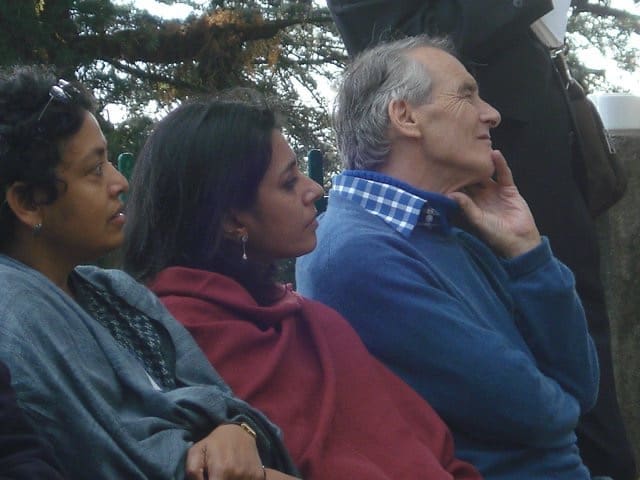
Something of this witnessing baanwra mann (wandering mind) is what drew me, a teenager reading an akhbaar (newspaper) supplement, to his non-trite newspaper travel column more than 30 years ago. Here was this Scot, son of a journeying coppersmith, poking around the Himalaya and packing much into a single column—dense, forested English and all. He’d upturn the odd signboard that the PWD was ready to discard, revealing some piece of Pahadi or municipal history. Or he’d refer to the government gazette with the rigour of a record-keeper and debunk a commonly accepted British claim.
At a time when tourist brochures overflowed with self-praise and overwriting—enough to give you gas rather than a sense of place—his writing lacked any desire to please the powers that be. At the other end were glossy coffee table books—where one hardly knew any coffee table owners to borrow them from. Bill made vicarious travel writing lively without being rude or excluding the local voice. This felt different from the popular Lonely Planet guides (instrumentally useful, yes, but devoid of any remotely Indian context or first-person voices. Like a tray of snacks passed from foreigner to foreigner, with the Indian expected only to serve.)
A Garbage Dump, an Icebox, a Story
On the sidelines of a Uttarakhand Assembly election in the newly formed state, Tania Saili Bakshi and I, then NDTV reporters, once walked with Bill near Mussoorie’s iconic Himalayan Club. Having read Patrick French’s biography of Francis Younghusband, I knew the club as a site where The Great Game of controlling Asia’s mountain citadels was plotted. Bill, however, stopped a little short of the club and pointed to a depression in the land—like a well, though it was on a hill’s slope. When we couldn’t guess what it was, he told us, with a matter-of-fact glint, that ice from the plains was once brought up by porters and stored there—to cool the spirits served at the club. Staring at that former icebox, now a semi-garbage dump, it struck me: this is what Bill’s writing often did—feel the pain of the local and the mad idea of the coloniser, while revealing a spot one might have entirely overlooked.
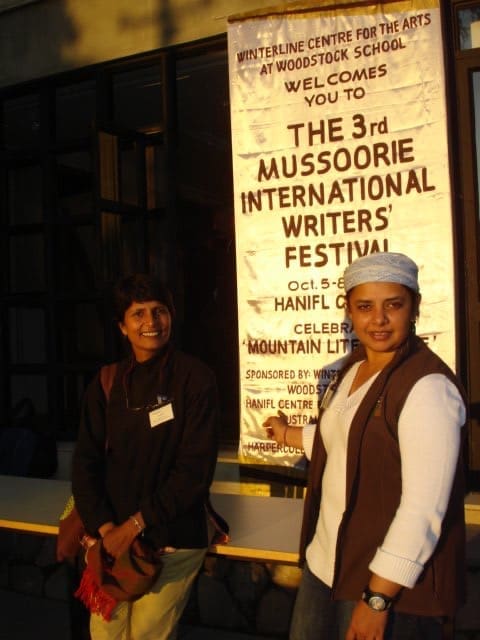
Bill Aitken had a knack for serving up delightfully middling, insider-outsider travel cues. He travelled no more than 200 km a day, moved slowly, wrote longhand or on a typewriter in the field. He was diligent in keeping notes but also carried a walker’s love for simply beholding. Rarely jumpy. Rarely without glee. (Mirtola to Kausani, some 40 km along the watershed via Chhota Binsar and Bada Binsar, was one of his favourite ambles during his ashram years.) In his writing, he sounded like a lovechild of the hippie and the ashramite—with none of the drugged haze of the former or the guarded piety of the latter.
At a time when travel writing was hyper-excitable TV shows, summer holidays at the grandparents’ home, or exoticised editorial assignments, Bill showed us how and why our own country was worth seeing—with heart and complexity.
He was also just not a bore.
Like a lover-pilgrim, he seemed to privilege what we now call slow travel (as if there’s any other kind, if you wish to be changed by it). He brought self-reflexivity to newspaper travel writing—feeling oddly contemporary in pre-internet India. At a time when travel writing was hyper-excitable TV shows, summer holidays at the grandparents’ home, or exoticised editorial assignments, Bill showed us how and why our own country was worth seeing—with heart and complexity.
He was also just not a bore.
Travel Writer? He’d Rather Just Travel
He was lucky, too: part-time in Delhi when Penguin India started publishing in 1982 and David Davidar asked him if he had a book ready. Or when the Delhi edition of The Statesman gave him a newspaper column. Or living between Delhi and Mussoorie in an era when travel photographs had to be hand-delivered to newspaper editors. Rukun Advani—then with Oxford University Press and later Permanent Black in Ranikhet—was instrumental in spiriting out Divining the Deccan.
By his own admission, though, Bill remained a traveller first, a writer later. There, perhaps, lay the heart of his appeal. (To the end, he remained surprisingly uninterested in calling himself “Bill Aitken, Travel Writer”—though his books might mildly disagree.)
The India He Showed Us
Take Travels by a Lesser Line, one of the few Indian travel books that journeyed through metre gauge railways across all four corners of India, just before they were largely dismantled. The steam locomotive-loving kid from Scotland once suffered the Palace on Wheels, where tourists posed with the steam engine at Delhi Cantonment Station—only for it to be replaced by an electric engine for the actual journey. So very Electric Moon of Indian Railways, some might say.
Or The Nanda Devi Affair—a title that could easily be mistaken for a Himalayan fling. But his bond with the mountain began with a photo he saw in Calcutta’s Asiatic Library, of the Shipton-Tilman expedition of the 1930s. That photograph shook him. And the pull never left. From his ashram room, he could see the massif—and eventually, he walked there again and again. There is no language of conquest in the book, just a familiar tone of surrender and awe.
Who among us hasn’t felt a pull toward something greater, one place more than another? What marks the traveller apart from the tourist is their willingness to follow that pull—no terms and conditions.
Seven Sacred Rivers is a travelogue-anthology well suited to our distracted times—and could sit comfortably among a growing body of Indian writing on rivers and water.
Most of all, who among us hasn’t felt a pull toward something greater, one place more than another? What marks the traveller apart from the tourist is their willingness to follow that pull—no terms and conditions. After reading Bill’s book, I found myself asking not whether I should go to Nanda Devi, but which place in the world was tugging at me. This other quality—of being in the moment and growing from there—is something he felt India lived far better than the hurried West he left behind. It bonded him more deeply to the country, even as he witnessed its changes.
His Himalayan Legacy
As he passes on, I remember Bill Aitken at the 3rd Mussoorie International Writers Festival in 2010, listening with interest to fellow honorary resident Victor Banerjee, who bellowed: “There’s no such thing as the Himalayas. Himalaya is already plural.”
On the sidelines, I asked Bill if there was another book coming. He gently mentioned his ailing partner and that he had already said what he needed to say.
Travel on, Bill Aitken. You are now part of the Himalaya, na?


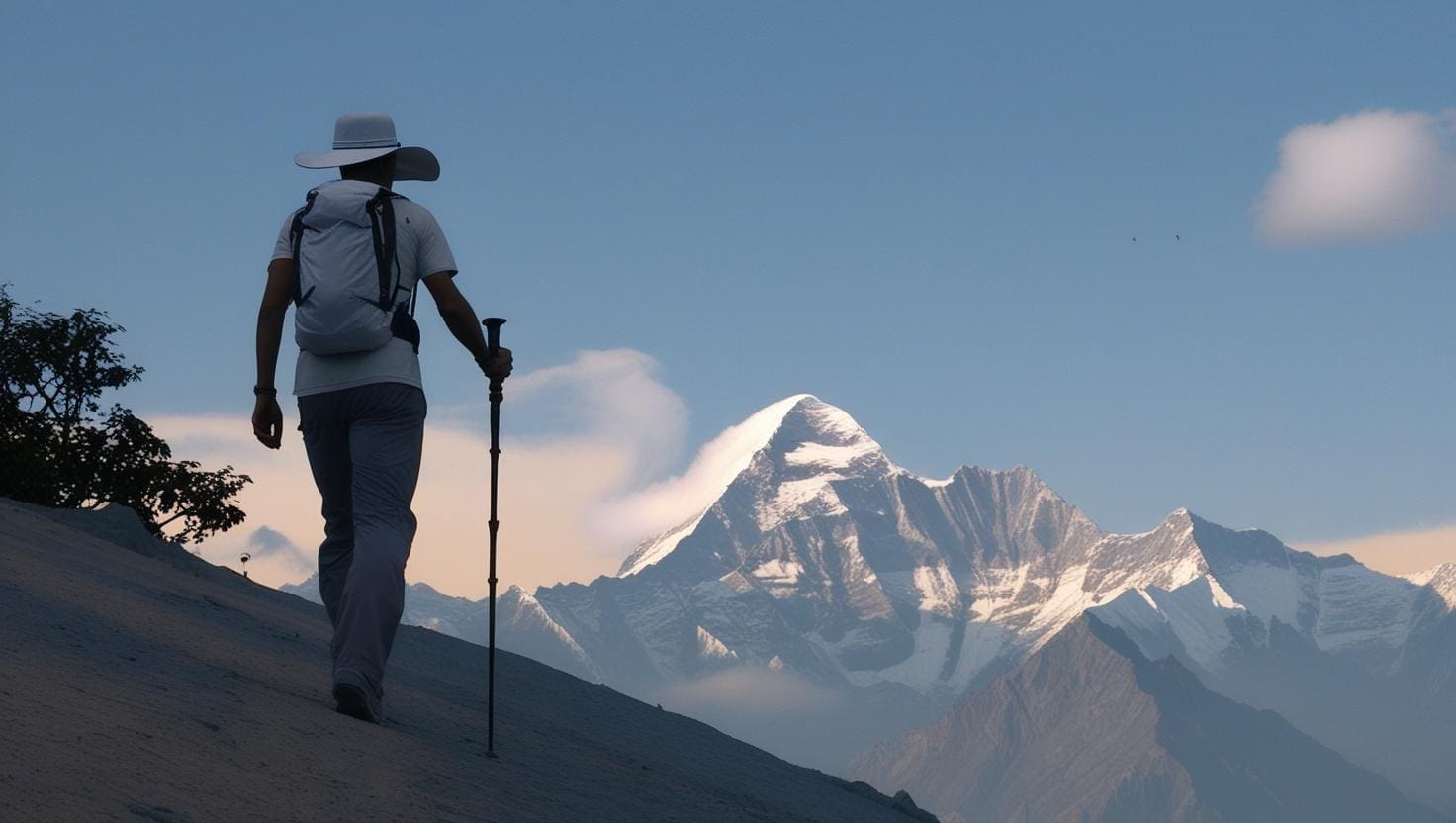
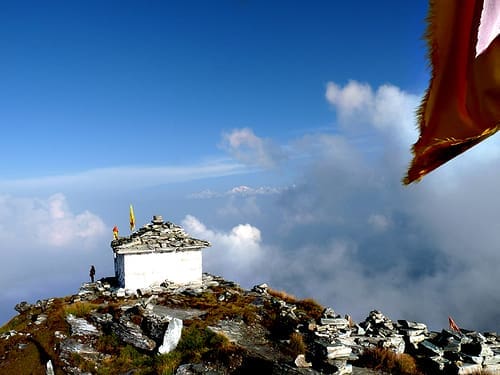
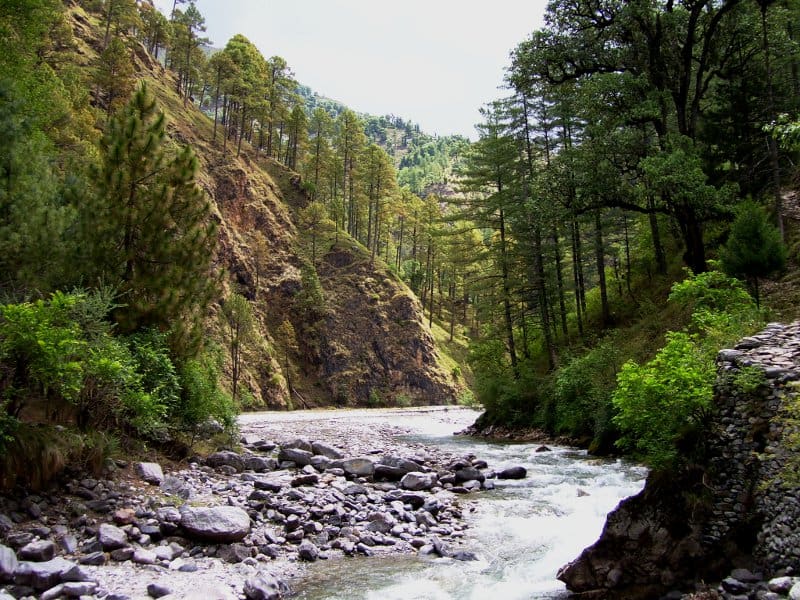

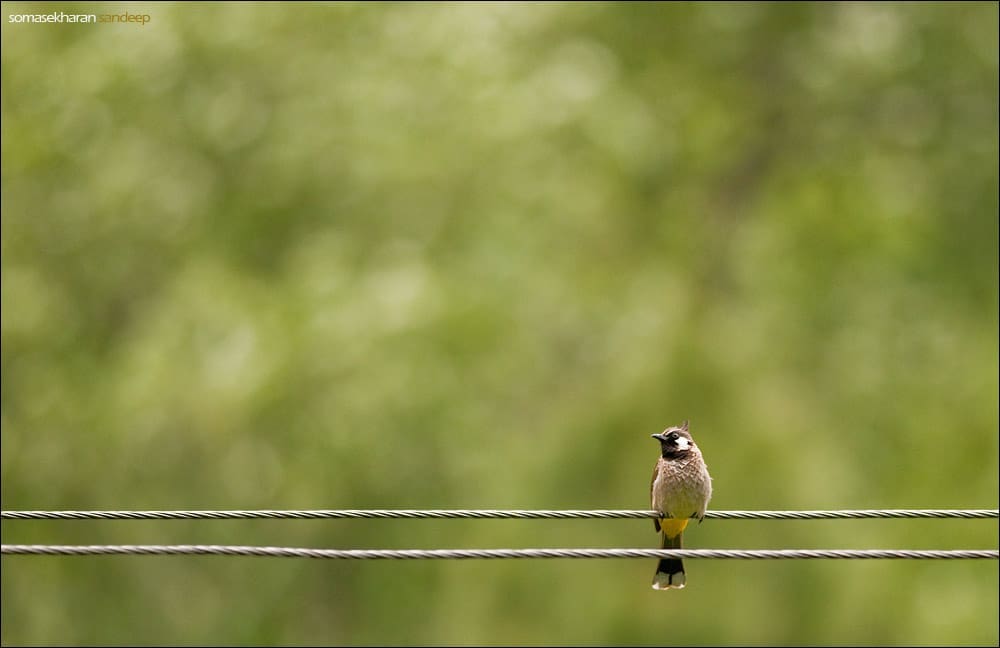

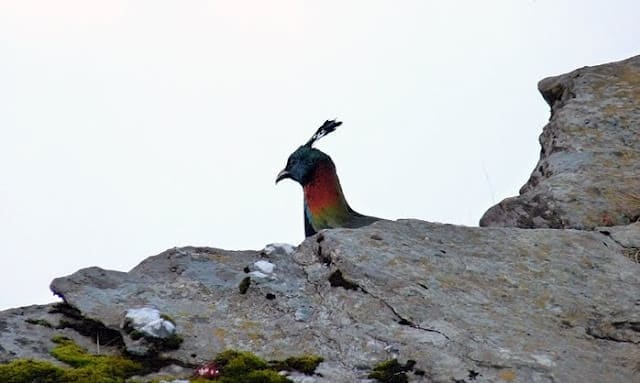

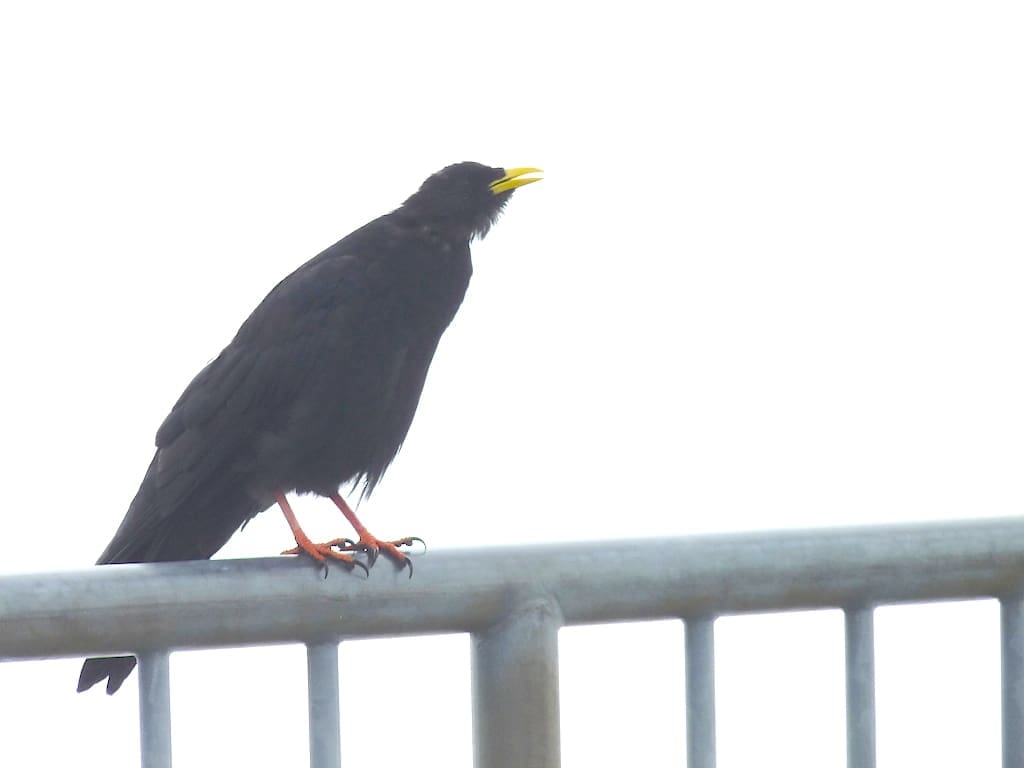
Thank you for reminding me of a travel writer I read long back, then forgot, with life’s busyness. Forgot both the writer and travel. I especially liked the comment about travel being at a peace where the place teaches me something about itself.
Thank you for your comment. Bill’s books are especially relevant reading in an age where travel has become an elitist performative pursuit, and travel writing as we knew it nearly forgotten.